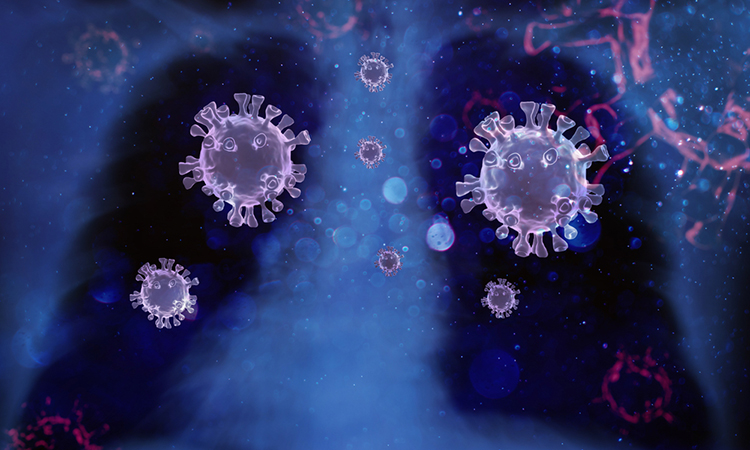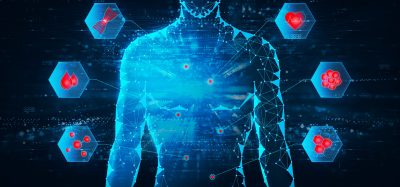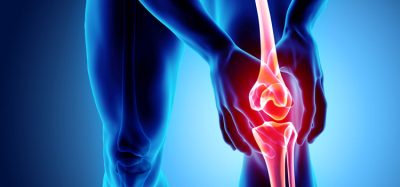Researchers identify potential drugs to reduce COVID-19 mortalities
Posted: 1 February 2022 | Nic Losardo (Drug Target Review) | No comments yet
Researchers have established a list of compounds that effect cytokine storms that could reduce mortality in COVID-19 patients.


Researchers at the National Cancer Research Centre (CNIO), Spain, have established a hierarchical list of compounds that they say could potentially help reduce mortality in the most serious COVID-19 patients, based on their power to halt cytokine storms. According to the team, their use could also be extended to other pathologies in which this inflammatory phenomenon also occurs.
The researchers explain that when inflammation is widespread and excessive, it can aggravate COVID pathology and even cause death. One of the ways in which this excessive response occurs is called a cytokine storm, an inflammatory process produced by cytokines, which send a signal that triggers the immune system.
“This response is often the cause of death in those affected by SARS-CoV-2 rather than the virus itself,” explained Óscar Fernández-Capetillo, one of the authors of the article published today in Scientific Reports.
Although respiratory failure associated with acute respiratory distress syndrome (ARDS) is the leading cause of death from COVID-19, the researchers say that an accumulation of evidence shows that lethality in a subgroup of severe patients occurs due to the late appearance of an inflammatory cytokine storm.
The team used the scientific studies that emerged from April 2020 onwards and identified changes in gene expression in lung cells from SARS-CoV-2 patients dying as the result of a cytokine storm. These data were then used to probe the Connectivity Map database, developed by the Broad Institute, part of MIT and Harvard University, which contains changes in gene expression induced by around 5,000 compounds, including all drugs approved for clinical use.
The aim was to identify potential “antidotes” – compounds that induce opposing changes in the expression of genes to those seen in patients with COVID-19.
“The study predicts that glucocorticoids such as dexamethasone should be effective in combatting mortality in patients with COVID-19, which was comforting because, in fact, these drugs, along with others, are already being used in hospitals to combat death from COVID-19,” said Fernández-Capetillo.
To their surprise, the researchers identified – and subsequently validated in vitro – that MEK protein inhibitors, commonly used in cancer treatments, had a strong anti-inflammatory effect.
“I think this anti-inflammatory property of MEK inhibitors is fairly unknown and there needs to be more knowledge about it because it increases our arsenal of anti-inflammatory compounds that could contribute to mitigating cytokine storms that can occur in several contexts, such as after transplants, chemotherapy and other infectious diseases including COVID-19,” said Fernández-Capetillo.
The researchers emphasise that any anti-inflammatory drug-based therapy – including glucocorticoids – should be restricted to the late and severe phases of COVID-19, since the use of anti-inflammatory therapies in the early stages of the disease would limit the effectiveness of the immune system in its fight against infection.
Another important aspect is that all the analyses conducted as part of the study converged to indicate that female hormones could help to fight the cytokine storm, which might explain why men tend to get more serious forms of COVID-19.
“Also, it would be consistent with the fact that the difference in mortality by sex is mitigated in advanced ages, when menopause appears and oestrogen levels decrease,” explained Fernández-Capetillo.
In addition to predicting drugs that could combat the cytokine storm, the paper also reports compounds that could potentially aggravate this pathology. As might be expected, this list includes drugs that either activate the immune system or enhance inflammation. However, it also reveals possible interactions with some oncology treatments or with the insulin signalling pathway.
Related topics
Cytokines, Disease Research, Drug Development, Drug Leads, Translational Science
Related conditions
Acute Respiratory Distress Syndrome (ARDS), Covid-19
Related organisations
Harvard University, MIT, Spanish National Cancer Research Centre (CNIO)
Related people
Óscar Fernández-Capetillo








